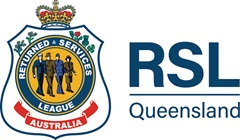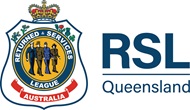
Two-up: An ANZAC Day tradition
01 April 2025- ANZACspirit
- History & commemoration
Learn all the basics of two-up – its history, its rules, and where to play the iconic game on ANZAC Day.
A brief history of two-up
Two-up (sometimes called ‘swy’) is a traditional gambling game that was often played by Australian diggers who served during World War I (WWI). The origins of two-up are unclear, but early versions of the game can be traced as far back as the convict years, and are believed to have evolved from the 18th century English and Irish game, ‘cross and pile’.
While two-up wasn’t invented by the ANZACs, the game gained immense popularity as an easy and accessible way for Australian soldiers to pass time and relieve boredom in the trenches. When the diggers returned home following the end of the war, two-up started appearing at the pubs and RSLs where they often gathered to socialise.
Two-up was always an unregulated form of gambling, but during WWI authorities often turned a blind eye as its popularity soared. Since then, state and territory legislation has outlawed two-up while recognising it as a special and culturally significant tradition.
As such, two-up is now permitted (with conditions*) Australia-wide on ANZAC Day, and on selected other days in some states.
Today, playing two-up allows Australians to connect with history and keep the ANZACs’ spirit of larrikinism, mateship and camaraderie alive. Often (when there’s an entry fee to play) two-up games also raise funds for veteran welfare activities.
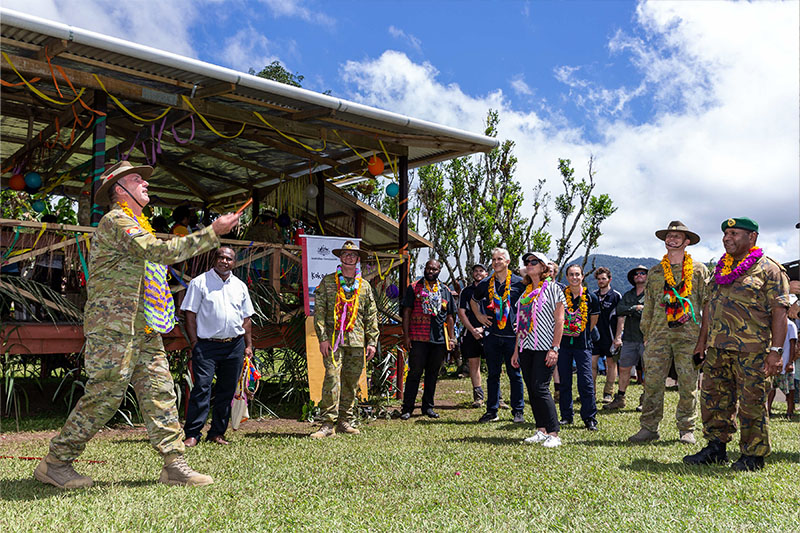
Image: Defence Australia | Regimental Sergeant Major – Army, Warrant Officer Grant McFarlane, AO (left) spins coins into the air during a game of two-up at Efogi village on the Kokoda Track as part of the Anzac Day 2019 commemorations, Papua New Guinea.
How to play two-up
Two-up terminology
First, you’ll need to familiarise yourself with some key terms commonly used during gameplay. There are more than 140 unique words and phrases associated with two-up, but here are a few that you’ll commonly hear during play:
- Boxer (AKA ringkeeper) – the person taking and paying bets and ensuring the game is played fairly
- Heads – both pennies land on the side featuring the head of a monarch
- Kip – the paddle that the pennies are placed on to throw
- Odds – one penny lands ‘heads’, and the other lands ‘tails’
- Ring – the space where the game takes place
- Ringkeeper – another name for the ‘boxer’
- School – the crowd of punters
- Spinner – the punter throwing the pennies
- Tails – both pennies land on the side marked with a white cross
Two-up rules
- In a game of two-up, the school gathers around the ring. The game begins when a spinner is randomly chosen by, and places their bet with, the boxer.
- The boxer then finds another member of the school to place a matching opposite bet against the spinner. At the same time, secondary betting among members of the school takes place. As a guide, a typical bet ranges between $5 to $20 and consists of a choice between ‘heads’ (signalled by placing a banknote on your head) or ‘tails’ (signalled by placing a banknote on your rump).
- After the boxer says, “All bets off”, two* pennies are placed on the kip tails-side up and the spinner will throw them at least 3m in the air. The pennies need to land as either two ‘heads’ or two ‘tails’ inside the ring to declare a winner. If they land as odds, and/or on the edge or outside of the ring, the spinner needs to throw again. Be careful, though – in some venues, three odds will earn the spinner 10 push-ups!
- The spinner can only win by throwing ‘heads’, and other punters in the school betting on ‘heads’ will hold the cash wager for each round. Once the boxer announces the outcome of the throw, money is exchanged depending on who won. The boxer’s decision on a winner is always final.
*In some venues, three pennies are thrown to prevent ‘odds’, which can speed up the game.
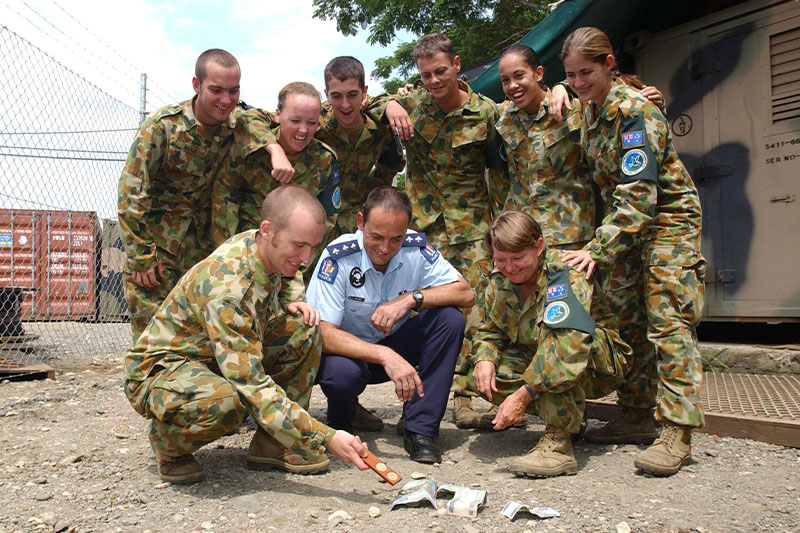
Image: Defence Australia | hoto By Leading Seaman (LSPH) Ollie Garside Service people are practicing their two-up skills for Anzac Day in Honiara, Solomon Islands.
Where and when to play two-up
Two-up is an illegal form of gambling in Australia, but state and territory laws make a few exceptions to keep the ANZAC spirit alive.
Under certain conditions*, two-up can be played:
- on ANZAC Day Australia-wide
- on ANZAC Day and the week prior in Victoria
- on commemorative days in Queensland and New South Wales
- year-round at approved venues, such as Western Australia’s historic Kalgoorlie Two-Up School and various locations in Broken Hill, New South Wales.
To keep everything above board, all two-up players must be at least 18 years of age. In most cases, nobody is allowed to take a commission on wagers, though some states allow this if the funds go to charity.
You may be asked to pay an entry fee to play, but the proceeds are generally donated to the hosting RSL Sub Branch or services club to help support veteran welfare activities.
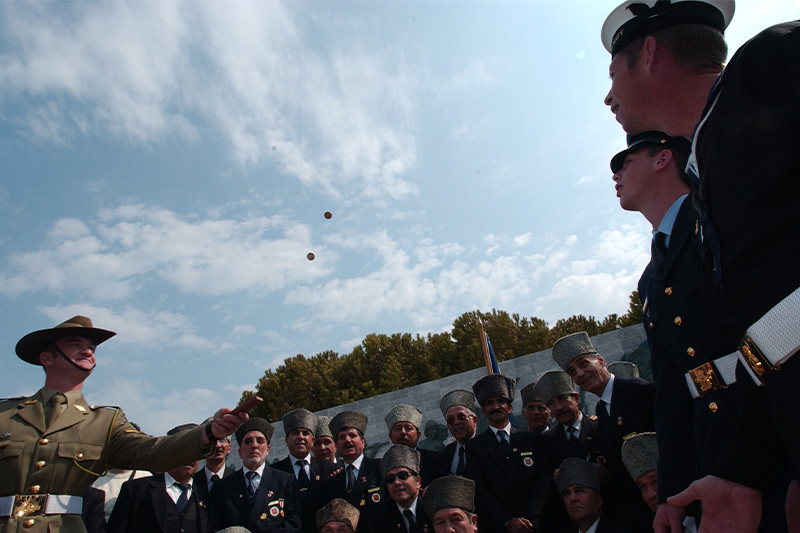
Image: Defence Australia | Lance Bombardier Greg Meller, Leading Aircraftman Jonathon O'Brien and Leading Seaman Jeffery Streeter play two-up with Turkish veterans.
Two-up laws around Australia
Here’s a brief, state-by-state guide to where and when you can play two-up.
Australian Capital Territory
Two-up can be played on ANZAC Day if:
- the owner or person in charge of the game venue gives permission
- there’s no charge, commission or fee, unless it raises funds for a charitable purpose.
More info: gamblingandracing.act.gov.au
New South Wales
Two-up is permitted:
- on ANZAC Day and other commemorative days
- year-round at approved locations in Broken Hill.
Entry fees and commissions aren’t allowed unless the game is conducted by a registered club, in which case the funds must be allocated to charity.
More info: legislation.nsw.gov.au
Northern Territory
Two-up may be played:
- on ANZAC Day if conducted by or on behalf of an RSL club, with any profits payable to that club
- outside ANZAC Day at racing venues that meet certain conditions.
More info: legislation.nt.gov.au
Queensland
Two-up is allowed on legally designated days of remembrance if:
- conducted by an RSL or services club on their own licensed premises
- conducted on licensed premises by someone with written approval from an RSL Sub Branch.
No commission can be charged on wagers. If players are charged an entry fee, those funds must be donated to the RSL or its Sub Branch to support veterans and their families.
More info: legislation.qld.gov.au
South Australia
Two-up can be played on ANZAC Day on RSL Sub-Branch premises, or premises owned or occupied by the Australian Defence Force.
Commissions and participation fees are not allowed.
More info: legislation.sa.gov.au
Tasmania
Two-up is permitted from 6am to 6pm on ANZAC Day on the permanent premises of an organisation of which the majority of members are former Defence Force members (e.g. RSL Sub-Branches).
More info: treasury.tas.gov.au
Victoria
Two-up may be played on ANZAC Day, or during commemorative functions in the seven days prior, at:
- RSL Sub-Branches
- RSL clubs
- any venue used by the RSL.
More info: vgccc.vic.gov.au
Western Australia
Two-up is permitted only with a ministerial permit. Additional rules apply to two-up games played outside of ANZAC Day. Permit applications for ANZAC Day should be lodged by 1 March.
The Kalgoorlie Two-Up School runs two-up games year-round under special licence.
More info: dlgsc.wa.gov.au
This ANZAC Day
ANZAC Day (25 April) is a time to recognise all who have served our nation, and their invaluable legacy.
Wherever you’ll be on ANZAC Day, please join the community in attending a commemorative service.
There’s no greater way to honour those who have served.
Related News
Loading
